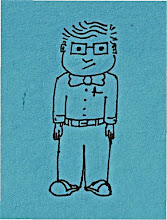Two days ago I went out to get lunch and walked past a tinny radio sitting outside a Coke truck that was playing "All Apologies." The radio was slightly mistuned, so Nirvana was infused with static and some contemporary ass-pop playing on a lesser station. When Kurt Cobain wrote that song did he think about all the crappy radios on which it might be played in the future? All the places his music might go decades after his death.
When I was in Ecuador in 1999, I remember walking down Avenida Doce de Octubre in Quito and hearing Celine Dion’s voice echoing across the cityscape. I couldn’t pinpoint where the song was coming from; it was penetrating and omnipresent. The soundwaves ricocheted between the modest, semi-vacant skyscrapers and the inclined slope of the active volcano, La Pichincha, like an image reflected against itself in parallel mirrors. Did she think her voice would ever go there?
When someone writes a song, don’t they imagine it in divine places? Concert halls and movie scores. Or playing in the background while the better men who came before us dine at the long tables of Elysia. Musical ambrosia.
Shakespeare’s education was vast because he lived after the invention of the printing press. The myths, the Bible, and other stories that were already thousands of years old were reverberating in academic halls during his formative years. He must have understood the enduring capabilities of the written word.
But did he imagine this staying power for himself? Did he ever think his plays would be so frequently butchered by disillusioned actors of the distant future? Or that he would have his own section carved out in books and music megastores? A category unto himself. More than literature. More than theater.
A play’s a fleeting thing. I used to have a theater company in Minnesota, and every year we would participate in the Fringe Festival. For ten days in August Minneapolis theaters are bombarded with more than 100 new plays, and most of them are forgotten mere hours after the closing night party on the rooftop of Joe’s Garage. What hubris it would be to imagine that a play I wrote would endure in memory and performance years, decades or centuries after my last keystroke.
At the end of Henry V the Chorus comes on stage and makes a quick reference to the Henry VI trilogy, which was written and performed before Henry V debuted. England has just conquered and united with France when the Chorus says:
Henry the Sixt, in infant bands crown’d King
Of France and England, did this king succeed;
Whose state so many had the managing;
That they lost France, and made England bleed;
Which oft our stage hath shown; and for their sake,
In your fair minds let this acceptance take. (Epilogue)
The Riverside Shakespeare Second Edition I’m reading from describes this as an allusion “to the great popularity of the Henry VI plays.” (p.1015)
There’s something very personal about the Chorus’s line. Almost as though the company feels a kinship with the audience. Knowing that these people, in attendance of this production are the same people for whom they’ve performed in the past. Shakespeare knew them, he saw them when he acted for them. He could smell them and drink with them.
He’s not like a novelist who toils in obscurity and never appreciates the critical clamor over his posthumous publications. He was clapped on the back and applauded. He knew ovations and -- I imagine -- the admirational flirtation and trim that is a poet’s supplement.
Why would he need to think into the future? Why would he care to dream of the distant media that his words would inhabit? Or the weary young man who sits at a table at Border’s mining his work for inspiration. If anything he probably assumed that his stories would be taken and repurposed by playwrights in the future, as he had done with the stories the printing press delivered to him.
Aside from the myths from which he borrowed, there’s the Italian Novella written by Giraldi Cinthio, Hecatommithi, published in1565 that became Othello. And Raphael Holinshed’s Chronicles was the major source for all his histories. He knew stories were to be retold and touched up, otherwise they fall into that infinite echo between the two mirrors of the world.
Some days after I heard Celine Dion in Quito, I went on a serenade. Joselo, Francia, Fernando, Maria, Ivan and I stood in the damp street on the slopes of La Pichincha and sang up to the third story apartment of Francia’s parents on their wedding anniversary. Joselo strummed the charango, Ivan on Guitar, Fernando drums, Maria the pan pipes and myself on tambourine. We sang a song called La Chinchinal, an Andean folk song that beckoned windows to open all along the avenue like a warm, wafting aroma.
Dios Quiera poner las manos sobre la cima
Del Chinchinal,
Y asi divisar la tierra donde nacio.
Ay Corazon de mi alma, donde estaras?
Quisiera verle a mi guambra, donde estaras?
It was amazing. One of the best things of which I’ve ever been a part. But as we sang the words they melted into the black cielo Ecuatoriano, into the reflected cacophony we know as silence.
That’s where these words will end up too. Where most of the things we make go. Where all the forgotten songs and plays and creations of man mingle forever in invisible vibrating waves between volcanoes and skyscrapers.

No comments:
Post a Comment